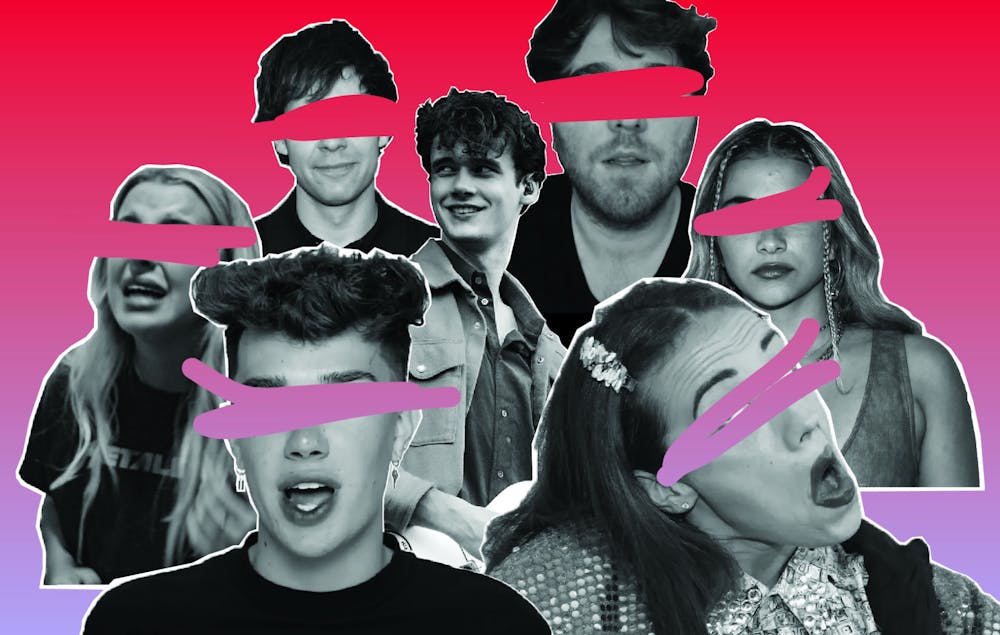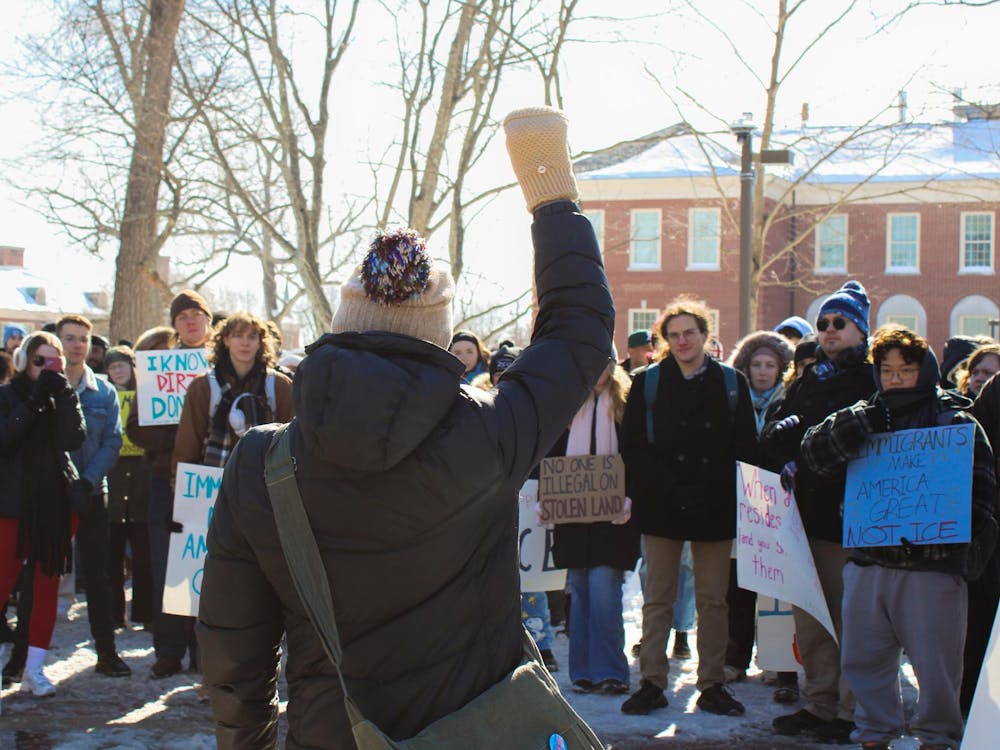It was late February when I opened X, formerly known as Twitter, for the first time in weeks only to be bombarded with information that made me want to close the app immediately.
The lead singer of my favorite band, Lovejoy, had been accused by his ex-girlfriend of abuse.
I pored over her statement and headed straight to Spotify to block the band. I removed their songs from my playlists and their band name from my “concert bucket list” in my notes app. I demoted their band t-shirt from hanging in my closet to sitting at the bottom of my sleep shirt drawer.
I’m not one to believe everything I read online, but I would rather temporarily stop listening to someone innocent than support an abuser.
Feelings of shock and disappointment stuck with me for days after, and they only intensified when the singer released his explanation of the situation. It focused solely on his personal growth since their relationship and dismissed the accusations, but provided no proof it was untrue. The comment section was flooded with messages from almost everyone he had ever associated with expressing extreme disappointment in him and how he handled everything.
Days later, my roommate asked if I knew about what was happening. When I told her I did, she just responded with an unfazed, “wow.”
Her reaction is often like mine when I hear about a well-known online figure being accused of terrible things, because typically it’s not someone I’m a fan of. But this time, it was different.
This was the first time this was happening to someone I liked. Someone who’s content and music I found comfort in during the pandemic.
It's not uncommon for our generation to be unruffled by how secretly horrible content creators are. We’re also very quick to hold the people we look up to accountable, something I’ve noticed happening more frequently since the world was forced online during the pandemic.
An unfazed reaction could also be because it feels like this sort of thing happens quite repeatedly. Online figures can either never do anything right or “politically correct,” or are genuinely doing something terrible. I tend to wonder if there's something about being famous that corrupts once normal people or if it's just a coincidence we’re giving a platform to corrupt people.
One psychological experiment may hold some insight into this phenomenon.
In August 1971, Stanford University conducted an experiment to examine the effect of role-playing, labeling and social expectations on behavior, called the Stanford Prison Experiment. It also aimed to answer the question of what happens when good people are placed in an evil place, according to its website.
Enjoy what you're reading?
Signup for our newsletter
This experiment specifically focused on the psychological effects of becoming a prisoner or prison guard by creating a simulation of prison with male college students. The students were split into prisoners and guards, their roles determined by the flip of a coin.
What was meant to last two weeks was suspended after only six days.
The guards were given no specific training and were instructed to do whatever they deemed necessary to maintain law and order and command respect. So, the guards designed their own rules.
By humiliating, creating distrust and degrading the prisoners, the guards created an environment similar to the reality of prison, which the prisoners fell victim to.
Less than 36 hours into the experiment, a prisoner began suffering from acute emotional disturbance and uncontrollable crying and rage. The experimenters suspected at first that the prisoner was attempting to con them, but later realized he needed to be released immediately. The pattern of prisoners experiencing mental distress and needing let go continued.
Experimenters were puzzled by how the guards moved so readily into their roles and how mentally healthy, intelligent, “ordinary” men became corrupt so quickly.
The experiment ended on the sixth day because prisoners were withdrawing and behaving in pathological ways, and some of the guards were behaving sadistically.
One conclusion can be drawn from this experiment: a position of power can corrupt ordinary people.
This psychological phenomenon may be what's happening among online content creators. The idea that people now look at them with admiration and praise could alter the way they see themselves, making them think they can get away with whatever they please.
I haven’t listened to a second of any Lovejoy song since what happened back in February. Sometimes I miss the music, but the lyrics unfortunately remind me of why I’ve cut them off. Although, I’ve yet to change my ringtone from my favorite Lovejoy song, mainly because I don’t know what to change it to.
But maybe a part of me doesn’t want to let go, but knows I need to.
Taylor Powers is a first-year double majoring in journalism as well as media and communication from Trenton, Ohio. She is a staff writer for The Student and an assistant editor for The Miami Student Magazine.




